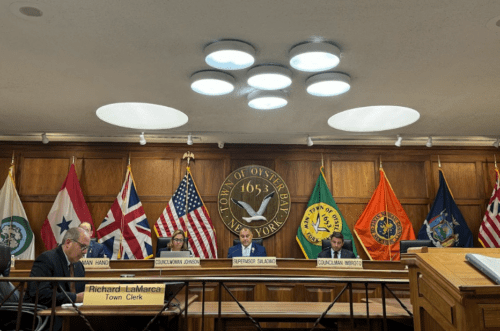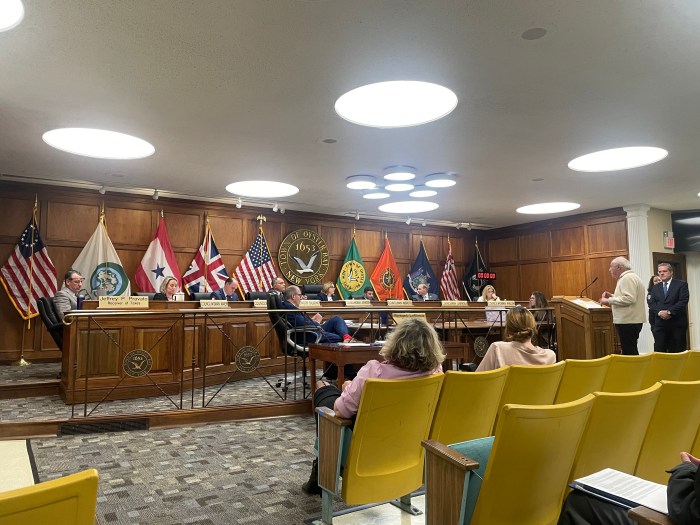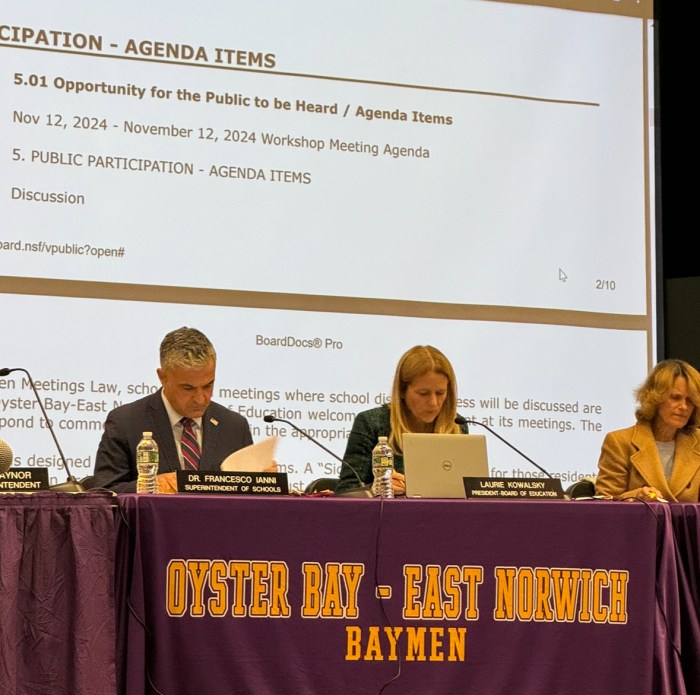Town of Oyster Bay Council members unanimously approved a resolution Tuesday to impose a six-month shellfish harvesting moratorium on 1,850 acres of underwater land in the town harbor.
The resolution says the underwater land will be tested and repopulated during the next six months. The tests will help determine how long-term harvesting has affected the environment. The town was unable to survey the area during the lease period.
“This temporary moratorium will help us strengthen the health of the harbor while not impacting any current shellfish harvesting by local baymen on the more than 4,000 acres they currently fish,” said Town Supervisor Joseph Saladino.
The 1,850 acres of land accounts for a portion of the 4,000-acre area where baymen harvest. Independent baymen will be able to harvest outside of the previously leased area.
“Harvesting in public waters will continue as currently allowed, with no changes to access or regulations, ensuring that local baymen and recreational anglers/shellfish harvesters can continue their activities without any disruption,” Saladino said.
The 1,850 acres were previously leased to the local shellfish harvesting company Frank M. Flowers & Sons. Flowers had exclusive rights to this land for 30 years, but its lease expired on Monday.
Independent harvesters spoke at the Aug. 13 public hearing regarding the moratorium and said that leasing out the land is the most viable option.
“All the good land was leased out,” one Syosset resident said. “The town over-leased the bay.”
At the hearing, William Painter said that baymen should be allowed to continue harvesting during the testing period.
“Baymen are not opposed to the study,” Painter said. He said that the study is important, but independent baymen should have access to the previously leased land.
Saladino said that the town has worked with local environmental groups, like Friends of the Bay, to determine the best course of action.
“Friends of the Bay and local environmental groups have all asked for and helped us in this process,” he said.
Friends of the Bay said a moratorium will allow for a “once-in-many lifetimes opportunity to help restore the bay and its dwindling shellfish populations for many generations to come.”
“We believe it is important to take the time to survey those lands, their condition, and what remains on them before they are reopened for harvesting,” the organization said.
The town said the Department of Environmental Resources supported the temporary moratorium and that other states have effectively used similar moratorium measures in their waterways.
The town said that the leased land has a lower shellfish population than in previous years, and that Flowers did not repopulate the land as dedicated by the lease.
Brian Nevin, public information officer for the town, said, “For four years, the company failed to provide a minimum of one million hatchery-produced clams annually, thereby depleting the harbor of crucially important shellfish which provide the necessary water filtration to prevent pollution.”
The town said that during the moratorium period, it will repopulate the waterways with baby clams and oysters.
The approved short-term moratorium will last six months and will only affect the 1,850 acres of previously leased land.
































